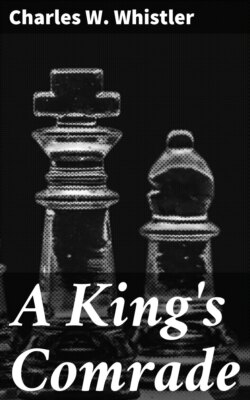Читать книгу A King's Comrade - Charles W. Whistler - Страница 20
На сайте Литреса книга снята с продажи.
PREFACE.
ОглавлениеTable of Contents
Hereford Cathedral bears the name of Ethelbert of East Anglia, king and martyr, round whose death, at the hands of the men of Offa of Mercia, this story of his comrade centres, and dates its foundation from Offa's remorse for the deed which at least he had not prevented. In the sanctuary itself stands an ancient battered statue--somewhat hard to find--of the saint, and in the pavement hard by a modern stone bears a representation of his murder. The date of the martyrdom is usually given as May 20, 792 A.D.
A brief mention of the occurrence is given under that date in the "Anglo-Saxon Chronicle," and full details are recorded by later historians, Matthew of Westminster and Roger of Wendover being the most precise and full. The ancient Hereford Breviary preserves further details also, for which I am indebted to my friend the Rev. H. Housman, B.D., of Bradley.
These authorities I have followed as closely as possible, only slightly varying the persons to whom the portents, so characteristic of the times, occurred, and referring some--as is quite possible, without detracting from their significance to men of that day--to natural causes. Those who searched for the body of the king are unnamed by the chroniclers, and I have, therefore, had no hesitation in putting the task into the hands of the hero of the tale. The whole sequence of events is unaltered.
Offa's own part in the removal of the hapless young king is given entirely from the accounts of the chroniclers, and the characters of Quendritha the queen and her accomplice Gymbert are by no means drawn here more darkly than in their pages. The story of her voyage and finding by Offa is from Brompton's Annals.
The first recorded landing of the Danes in Wessex, with which the story opens, is from the "Anglo-Saxon Chronicle;" the name of the sheriff, and the account of the headstrong conduct which led to his end, being added from Ethelwerd. The exact place of the landing is not stated; but as it was undoubtedly near Dorchester, it may be located at Weymouth with sufficient probability. For the reasons which led to the exile of Ecgbert, and to his long stay at the court of Carl the Great, the authority is William of Malmesbury. The close correspondence between the Mercian and Frankish courts is, of course, historic--Offa seeming most anxious to ally himself with the great Continental monarch, if only in name. The position of the hero as an honoured and independent guest at the hall of Offa would certainly be that assigned to an emissary from Carl.
With regard to the proper names involved, I have preferred to use modern forms rather than the cumbrous if more correct spelling of the period. The name of the terrible queen, for example, appears on her coins as "Cynethryth," and varies in the pages of the chroniclers from "Quendred" to the form chosen as most simple for use today. And it has not seemed worth while to substitute the ancient names of places for those in present use which sufficiently retain their earlier form or meaning.
The whole story of King Ethelbert's wooing and its disastrous ending is a perfect romance in all truth, without much need for enhancement by fiction, and perhaps has its forgotten influence on many a modern romance, by the postponement of a wedding day until the month of May--so disastrous for him and his bride--has passed.
C. W. WHISTLER.
STOCKLAND, 1904.
